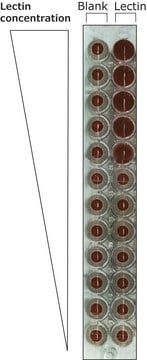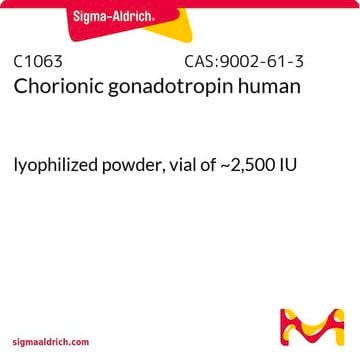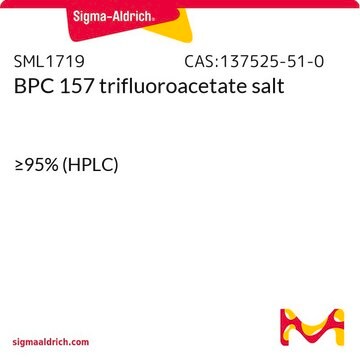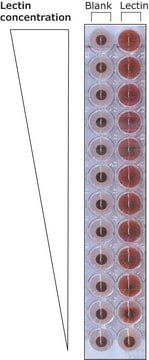L0770
Lectin from Pisum sativum (pea)
FITC conjugate, lyophilized powder
Synonym(s):
Pisum sativum agglutinin, PSA
About This Item
Recommended Products
conjugate
FITC conjugate
Quality Level
form
lyophilized powder
potency
<20 μg per mL agglutination activity
composition
Protein, ≥95% biuret
extent of labeling
2-4 mol FITC per mol protein (Lowry).
impurities
salt, free
storage temp.
−20°C
Looking for similar products? Visit Product Comparison Guide
Related Categories
General description
Application
Biochem/physiol Actions
Preparation Note
Analysis Note
Signal Word
Danger
Hazard Statements
Precautionary Statements
Hazard Classifications
Resp. Sens. 1 - Skin Sens. 1
Storage Class Code
11 - Combustible Solids
WGK
WGK 3
Flash Point(F)
Not applicable
Flash Point(C)
Not applicable
Personal Protective Equipment
Choose from one of the most recent versions:
Certificates of Analysis (COA)
Don't see the Right Version?
If you require a particular version, you can look up a specific certificate by the Lot or Batch number.
Already Own This Product?
Find documentation for the products that you have recently purchased in the Document Library.
Customers Also Viewed
Our team of scientists has experience in all areas of research including Life Science, Material Science, Chemical Synthesis, Chromatography, Analytical and many others.
Contact Technical Service
















